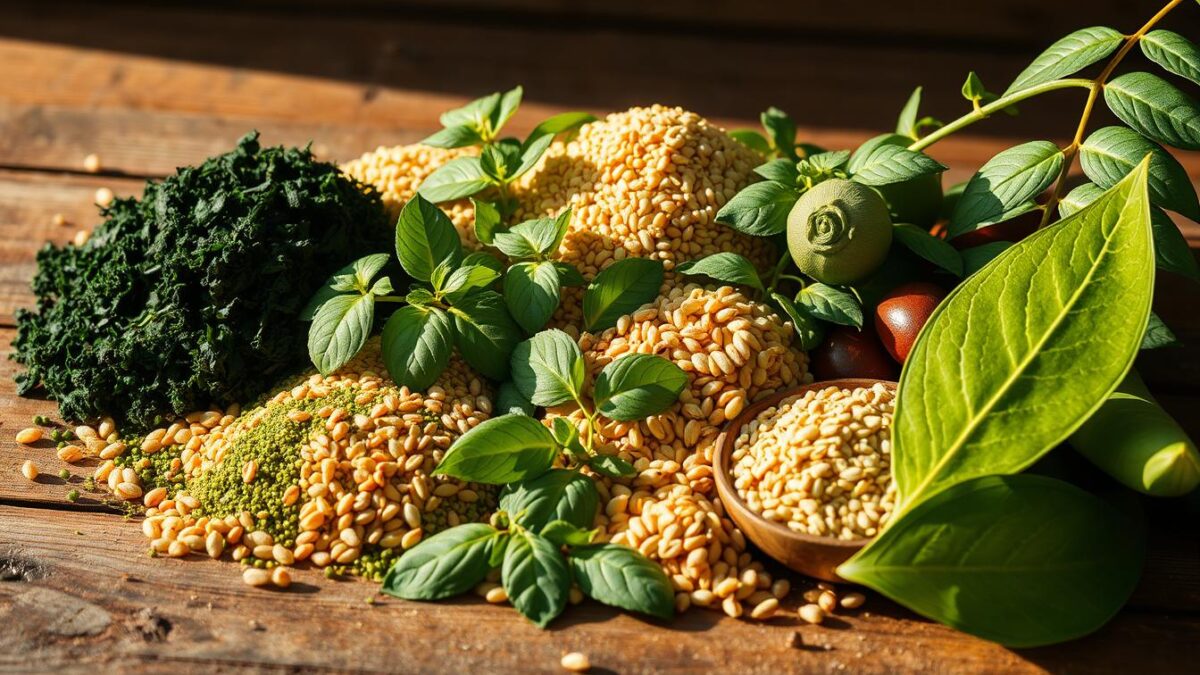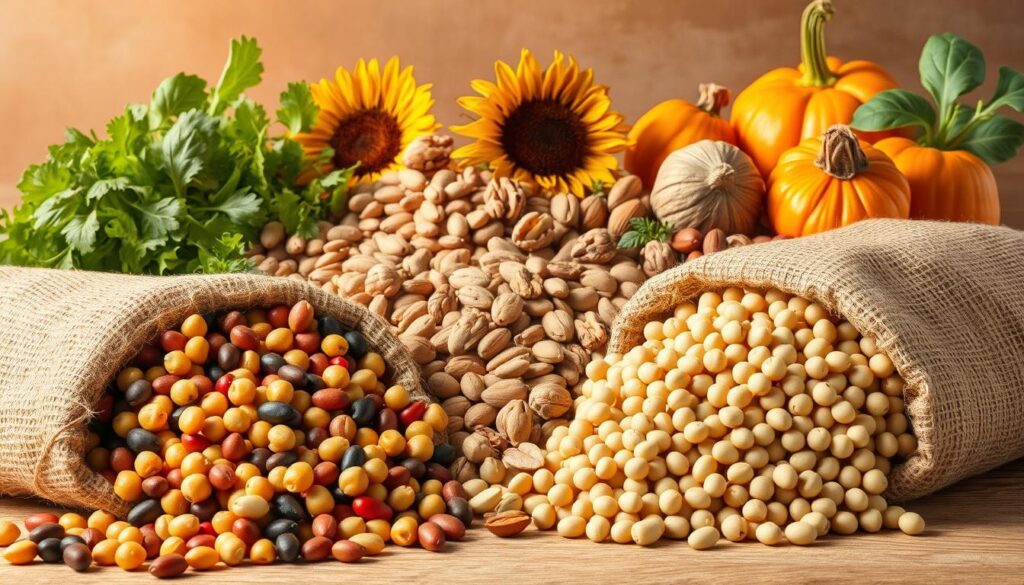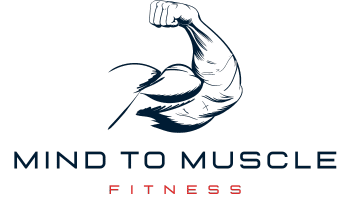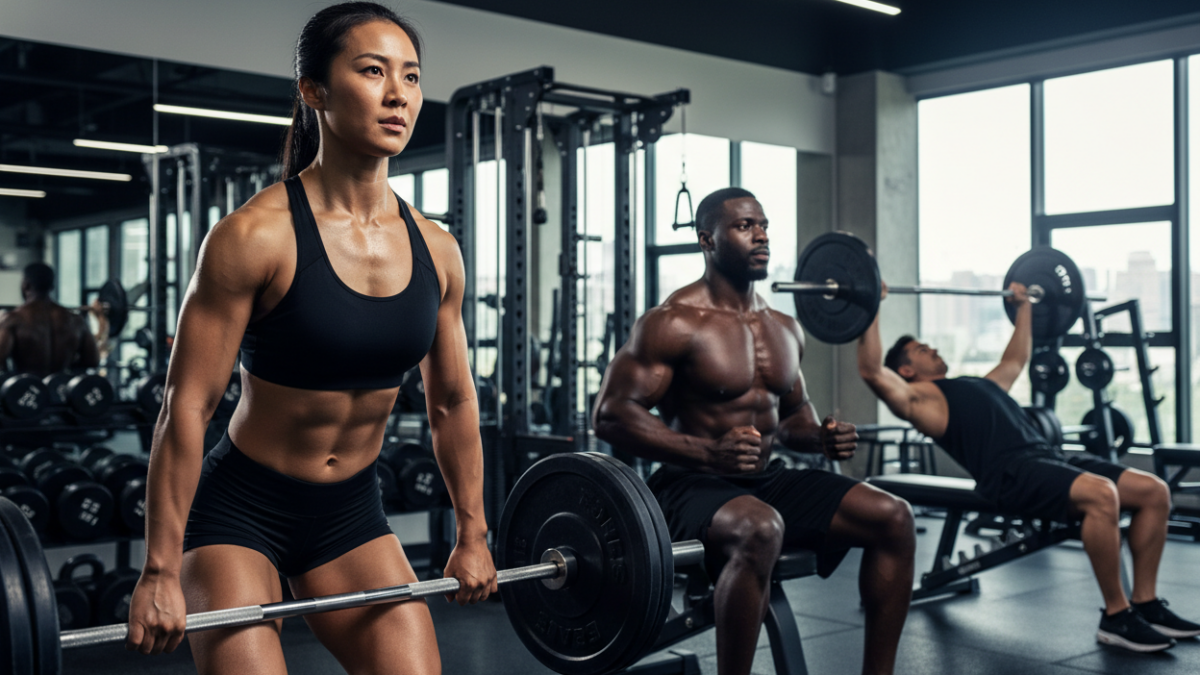
Plant-Based BCAA Alternatives for Vegan Athletes
As a vegan athlete, you might wonder about effective plant-based BCAA alternatives for your sports nutrition. These amino acids are key for muscle recovery and performance. They help you keep going during workouts while staying true to your plant-based lifestyle. With more vegans in sports, finding the right options can boost your performance.
Discover how vegan protein sources rich in BCAAs can improve your fitness and health.
What are BCAAs and Their Benefits?
BCAAs, or branched-chain amino acids, are key for athletes. They include leucine, isoleucine, and valine. These amino acids help with muscle metabolism. Unlike others, BCAAs are broken down in muscles, aiding in muscle repair and growth.
Understanding Branched-Chain Amino Acids
BCAAs help build protein and aid in recovery after workouts. Leucine is special because it boosts muscle protein synthesis. This is important for muscle growth and repair. Adding BCAAs to your diet can prevent muscle loss during hard workouts.
Benefits of BCAAs for Athletes
Many athletes use BCAA supplements to improve performance and reduce soreness. Some think these supplements greatly enhance training results. But, research shows whole foods can offer the same benefits without supplements. Eating enough protein-rich foods gives the BCAAs needed for muscle recovery and performance.
| Amino Acid | Importance | Food Sources |
|---|---|---|
| Leucine | Stimulates muscle protein synthesis | Chicken, fish, eggs, soybeans |
| Isoleucine | Helps in energy regulation and muscle recovery | Peanuts, lentils, quinoa, almonds |
| Valine | Supports muscle metabolism and energy production | Dairy products, beans, whole grains |
Importance of BCAAs for Vegan Athletes
Vegan athletes need to know how important branched-chain amino acids (BCAAs) are. BCAAs help a lot with muscle recovery and repair after hard workouts. They are key because a vegan diet might not always have all the proteins needed.
Muscle Recovery and Repair
Recovering muscles after hard exercise is key for getting stronger and lasting longer. BCAAs help make proteins and lessen soreness, making recovery quicker. Eating enough BCAAs helps your muscles fix themselves, which is super important for athletes who work out a lot.
Enhancing Performance
BCAAs also make workouts better by cutting down on tiredness. This lets you do more during training, leading to better results. Adding BCAAs to your diet helps with muscle recovery and boosts your athletic performance, making you stronger and more capable.
Plant-Based BCAA Alternatives
Looking for BCAA alternatives is key for those on a vegan diet. Luckily, many plant-based proteins can help. These options let you stick to your diet while keeping up with your fitness goals.
Top Sources of Plant-Based BCAAs
Many plant-based foods are good sources of BCAAs. Here are some of the best:
- Legumes and beans: Lentils, chickpeas, and black beans are rich in essential amino acids.
- Tofu and tempeh: These soy-based products stand out for their impressive protein content and BCAA profile.
- Quinoa: This ancient grain offers a complete protein source, including BCAAs.
- Hemp seeds: Packed with protein, hemp seeds are a nutrient-dense option for vegan diets.
Comparative Effectiveness of Alternatives
Plant-based BCAA alternatives have their benefits, but their effectiveness varies. Protein powders from pea, hemp, or brown rice are great for athletes. They offer a concentrated dose of BCAAs.
Whole foods, on the other hand, give BCAAs and more. They add vitamins, minerals, and fiber to your diet. Finding a balance between supplements and whole foods is key to a healthy diet.
Vegan Protein Powders Rich in BCAAs
Choosing the right vegan protein powders is key for workout recovery and health. Pea protein, hemp protein, and rice protein are top picks. They offer rich BCAA content and cater to various dietary needs.
Pea Protein and Its Benefits
Pea protein is known for its complete amino acid profile. It’s a great source of BCAAs. This protein is also easy to digest, helping with muscle recovery after exercise.
It supports muscle repair and growth and is rich in iron. Pea protein is versatile, making it easy to add to smoothies, baked goods, and more. It’s a convenient choice for vegan athletes.
Hemp and Rice Protein Powders
Hemp protein is a mix of protein and fiber, boosting digestive health. It also has essential fatty acids for overall health. Rice protein, while not as complete on its own, offers unique benefits when combined with other proteins.
Pairing rice protein with pea protein can enhance the amino acid profile. This ensures you meet your protein needs effectively.
Whole Foods as BCAA Sources for Vegans
Adding whole foods to your vegan diet can boost BCAA intake. Legumes and beans are great for protein. Nuts and seeds add important nutrients. These natural foods improve your diet and performance.
Exploring Legumes and Beans
Legumes and beans, like chickpeas, lentils, and black beans, are full of protein and BCAAs. They also have fiber, vitamins, and minerals for health. Eating different legumes and beans helps meet BCAA needs and supports muscle recovery.
Incorporating Nuts and Seeds
Nuts and seeds add protein and healthy fats to your diet. Almonds, walnuts, chia seeds, and pumpkin seeds are great choices. They boost energy and overall health, making your meals richer and more nutritious.

| Food Item | Protein (g per 100g) | BCAAs (g per 100g) | Notes |
|---|---|---|---|
| Chickpeas | 19 | 3.6 | High in fiber and good for heart health. |
| Lentils | 26 | 5.8 | Rich in iron and folate, great for energy. |
| Almonds | 21 | 4.1 | Source of healthy fats and vitamin E. |
| Chia Seeds | 17 | 2.4 | High in omega-3 fatty acids and antioxidants. |
Making the Most of Your Plant-Based Diet
To get enough protein on a plant-based diet, you need to plan well and choose the right foods. You can get all the amino acids you need by mixing different foods. This way, you make your meals more interesting and boost your vegan nutrition.
Strategies for Sufficient Protein Intake
Here are some tips to get enough protein:
- Eat a variety of protein sources every day.
- Focus on meals with legumes, whole grains, nuts, and seeds.
- Try protein-rich snacks like hummus with veggies or nut butter on whole-grain toast.
Combining Food Groups for Complete Proteins
Combining different foods is key to getting enough protein. Mixing plant foods can make complete proteins with all nine essential amino acids. Here are some good pairs:
| Grain | Legume | Complete Protein Source |
|---|---|---|
| Rice | Beans | Rice and bean burritos |
| Quinoa | Chickpeas | Quinoa chickpea salad |
| Bulgur | Lentils | Bulgur lentil bowl |
By using these combinations, you not only support your muscle health but also make meal planning fun. With a little effort, a plant-based diet can be both fulfilling and tasty.
Potential Disadvantages of BCAA Supplements
BCAA supplements might seem like a good choice for better sports performance and recovery. But, it’s important to think about the downsides before starting. These products often don’t get checked well, which means they might have hidden ingredients that could be harmful. These risks might not show up right away, but they can add up over time and hurt your health in the long run.
Health Risks of Unregulated Supplements
Unregulated BCAA supplements can cause unexpected problems. Some might have fillers or bad stuff that can harm you. Without clear labels, you might end up taking something that makes you sick or causes an allergic reaction. It’s key to know what you’re putting in your body to stay healthy.
Impact on Blood Sugar Levels
Studies have found that too much BCAA can mess with blood sugar levels. This can upset the balance of insulin and glucagon in your body, which is bad for your metabolism. If you have diabetes or issues with blood sugar, think carefully about using BCAA supplements. It’s smart to watch how they affect you to make sure they’re good for your health goals.
Is BCAA Supplementation Necessary for Vegans?
For vegan athletes, figuring out if BCAA supplements are needed depends on their diet. Many plant-based foods have enough branched-chain amino acids (BCAAs). These are key for muscle repair and growth. With a balanced diet, vegan athletes might not need supplements.
Evaluating Nutritional Needs of Vegan Athletes
Vegan athletes need to focus on protein and amino acids. Eating whole foods like legumes, grains, and nuts can give them the BCAAs they need. Foods like lentils, quinoa, and chia seeds help with muscle repair and meet vegan dietary needs.
Alternatives to Supplements
There are many ways to boost muscle recovery without BCAA supplements. Diverse protein sources are key. Here are some options:
- Legumes: Black beans and chickpeas are great for protein and BCAAs.
- Nuts and seeds: Almonds and sunflower seeds are packed with nutrients and protein.
- Whole grains: Quinoa and barley offer carbs and support amino acids.
How to Choose Quality Plant-Based Supplements
Finding top-notch plant-based supplements needs careful attention and a deep understanding of what you buy. With so many choices, learning to read labels and look for certifications is key. This helps you pick the best supplements for your health.
Understanding Labels and Certifications
Labels are your guide to knowing if supplements are trustworthy. Look for certifications that show the product is safe and of high quality. NSF Certified for Sport is a good sign, as it means the supplements have been thoroughly tested.
This openness builds your trust in the supplements you pick.
Evaluating Purity and Effectiveness
When choosing supplements, purity is essential. Make sure to check the ingredients to avoid unnecessary additives. Brands that are open about where they source their ingredients and how they process them are usually the best.
This focus on transparency ensures you get supplements that work well for your fitness goals.
Looking Forward: The Future of Vegan Sports Nutrition
The world of vegan sports nutrition is changing fast. More athletes are seeing the good in plant-based diets. This is making the market for new nutrition products grow quickly.
Products made just for athletes are coming out. They offer great alternatives to old supplements. This change helps athletes perform better and makes fitness more welcoming to everyone.
Science is leading the way in vegan nutrition. Researchers are finding the best diets for athletes that are also plant-based. This is key for those who want to stay fit and care about animals and the planet.
Looking ahead, making vegan sports nutrition easy to get will be key. New plant-based options are helping athletes succeed, showing that you can be fit and kind to animals. Choosing vegan is now seen as a strong choice, not a sacrifice. It shows how nature can power our fitness journeys.



